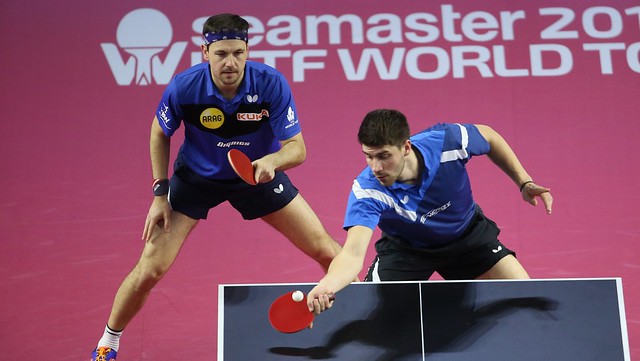by Ian Marshall, Editor
Matilda Ekholm beat Slovakia’s Tatiana Kukulkova (11-9, 18-16, 11-7, 11-8); in a rather more tense affair Margaryta Pesotska accounted for Monaco’s Yang Xiaoxin (9-11, 7-11, 11-6, 14-12, 11-4, 8-11, 11-9); a net an edge, a stroke of fortune and the number could well have been 17 Asian born players in total.
The most notable result of the day was the defeat if Hina Hayata, the winner last week at the ITTF Challenge Series tournament in Oman and last month in Portugal. She was beaten by Korea Republic’s Yoo Eunchong (5-11, 11-7, 12-14, 11-9, 13-11, 2-11, 12-10). Equally there was defeat for Japanese colleague, Satsuki Odo at the hands of the Korea Republic; she was beaten by Kim Haeyong (11-9, 4-11, 11-9, 7-11, 11-7, 11-5).
Now, the currently line of thinking is that Japan is moving ever closer to China but on the second day of qualification in Doha, the evidence was that there were three tiers in the women’s singles event. Europe formed the base measure, next came the east Asian countries of Chinese Taipei, Hong Kong and Korea Republic; then came China.
Gu Yuting and Sun Yingsha, the gold medallists respectively at the 2010 and 2018 Youth Olympic Games, established their authority as did He Zhuojia and Wang Yidi. Gu Yuting booked her place in the main draw by beating Hong Kong’s Minnie Soo Wai Yam (11-8, 11-2, 11-6, 11-5), Sun Yingsha dealt out similar treatment to Wu Yue of the United States (11-6, 11-6, 11-3, 11-3).
Likewise, He Zhuojia accounted for the Czech Republic’s Hana Matelova (11-9, 11-6, 11-4, 11-7), Wang Yidi ended the hopes of Germany’s Petrissa Solja (9-11, 11-6, 12-10, 11-6).
The four young Chinese player sent very clear messages; a seed could well be in line for an early exit on Thursday 28th March.





